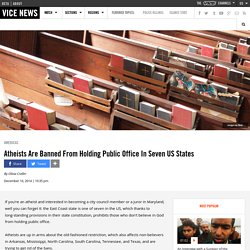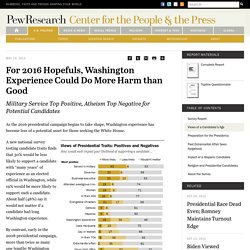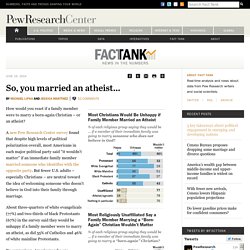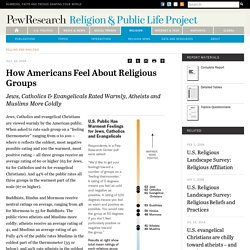

5 facts about atheists. Atheists Are Banned From Holding Public Office In Seven US States. If you're an atheist and interested in becoming a city council member or a juror in Maryland, well you can forget it: the East Coast state is one of seven in the US, which thanks to long-standing provisions in their state constitution, prohibits those who don't believe in God from holding public office.

Atheists are up in arms about the old-fashioned restriction, which also affects non-believers in Arkansas, Mississippi, North Carolina, South Carolina, Tennessee, and Texas, and are trying to get rid of the bans. Rob Boston, director of communications for Americans United for Separation of Church and State, told VICE News that these laws are "outdated provisions from a more bigoted time" but that they send a worrying message to atheists and non-believers. "If these affected Jews, Catholics, Mormons, they would have been removed long ago," Boston said. "Atheists are still pretty unpopular in the US. They scrap the bottom along with Muslims here," he added. Christopher B. Image via Flickr. For 2016 Hopefuls, Washington Experience Could Do More Harm than Good. Military Service Top Positive, Atheism Top Negative for Potential Candidates Survey Report As the 2016 presidential campaign begins to take shape, Washington experience has become less of a potential asset for those seeking the White House.

A new national survey testing candidate traits finds that 30% would be less likely to support a candidate with “many years” of experience as an elected official in Washington, while 19% would be more likely to support such a candidate. About half (48%) say it would not matter if a candidate had long Washington experience. By contrast, early in the 2008 presidential campaign, more than twice as many saw lengthy Washington experience as a positive than negative trait for a presidential candidate (35% more likely vs. 15% less likely). A separate measure dating back to the late 1980s shows an even larger decline in the perceived value of Washington experience. Americans are somewhat more open to the idea of an atheist president. Many Americans remain uncomfortable with electing a president who doesn’t believe in God, as evidenced by a recent Pew Research survey.

Asked about a list of traits and how each would impact their likelihood of supporting a presidential candidate, about half (53%) of Americans said they would be less likely to support an atheist. No other trait, including being gay or having never held elected office, garnered a larger share of people saying they’d be less likely to support the potential candidate. But some of the stigma associated with atheists may be fading as the number of U.S. adults self-identifying as atheist or agnostic rises. Even though roughly half of Americans say they’d be less likely to support an atheist for president, that number has gone down since 2007, when six-in-ten Americans (61%) said the same.
The American public has never had an atheist president, although three of them have had no formal religious affiliation. Topics: Religiously Unaffiliated. How would you feel if a family member were to marry an atheist? By Michael Lipka and Jessica Martínez How would you react if a family member were to marry a born-again Christian – or an atheist?

A new Pew Research Center survey found that despite high levels of political polarization overall, most Americans in each major political party said “it wouldn’t matter” if an immediate family member married someone who identifies with the opposite party. But fewer U.S. adults – especially Christians – are neutral toward the idea of welcoming someone who doesn’t believe in God into their family through marriage. How Americans Feel About Religious Groups. Jews, Catholics and evangelical Christians are viewed warmly by the American public.

When asked to rate each group on a “feeling thermometer” ranging from 0 to 100 – where 0 reflects the coldest, most negative possible rating and 100 the warmest, most positive rating – all three groups receive an average rating of 60 or higher (63 for Jews, 62 for Catholics and 61 for evangelical Christians). And 44% of the public rates all three groups in the warmest part of the scale (67 or higher). Buddhists, Hindus and Mormons receive neutral ratings on average, ranging from 48 for Mormons to 53 for Buddhists. The public views atheists and Muslims more coldly; atheists receive an average rating of 41, and Muslims an average rating of 40.
Fully 41% of the public rates Muslims in the coldest part of the thermometer (33 or below), and 40% rate atheists in the coldest part. Groups Tend To Be Rated Most Positively by Their Own Members Politics and Religion: Partisans’ Views of Religious Groups.